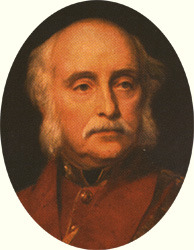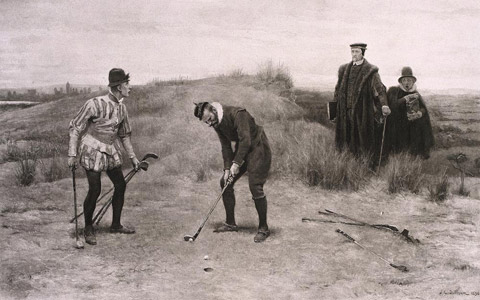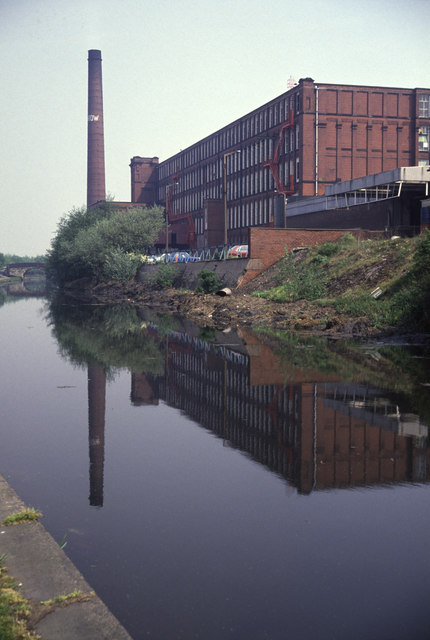|
East Lancashire Railway (1844–1859)
The East Lancashire Railway operated from 1844 to 1859 in the historic county of Lancashire, England. It began as a railway from Clifton via Bury to Rawtenstall, and during its short life grew into a complex network of lines connecting towns and cities including Liverpool, Manchester, Preston and Blackburn. During a period of rapid growth the company acquired several of its competitors, including the Blackburn and Preston Railway, which it purchased to gain access to Preston. It faced competition from companies such as the North Union Railway, and was involved in a notable stand-off in 1849 with the Lancashire and Yorkshire Railway. Following several years of discussions, the East Lancashire Railway was in 1859 amalgamated with the Lancashire and Yorkshire Railway. Parts of the network remain in use today, and a section of the original line between Bury and Rawtenstall is now operated as a heritage railway. History Manchester and Bolton Railway In 1830, the Manche ... [...More Info...] [...Related Items...] OR: [Wikipedia] [Google] [Baidu] |
Lancashire And Yorkshire Railway
The Lancashire and Yorkshire Railway (L&YR) was a major British railway company before the 1923 Grouping. It was incorporated in 1847 from an amalgamation of several existing railways. It was the third-largest railway system based in northern England (after the Midland and North Eastern Railways). The intensity of its service was reflected in the 1,650 locomotives it owned – it was by far the most densely-trafficked system in the British Isles with more locomotives per mile than any other company – and that one third of its 738 signal boxes controlled junctions averaging one every . No two adjacent stations were more than apart and its 1,904 passenger services occupied 57 pages in '' Bradshaw'', a number exceeded only by the Great Western Railway, the London and North Western Railway, and the Midland Railway. It was the first mainline railway to introduce electrification of some of its lines, and it also ran steamboat services across the Irish Sea an ... [...More Info...] [...Related Items...] OR: [Wikipedia] [Google] [Baidu] |
Act Of Parliament
Acts of Parliament, sometimes referred to as primary legislation, are texts of law passed by the Legislature, legislative body of a jurisdiction (often a parliament or council). In most countries with a parliamentary system of government, acts of parliament begin as a Bill (law), bill, which the legislature votes on. Depending on the structure of government, this text may then be subject to assent or approval from the Executive (government), executive branch. Bills A draft act of parliament is known as a Bill (proposed law), bill. In other words, a bill is a proposed law that needs to be discussed in the parliament before it can become a law. In territories with a Westminster system, most bills that have any possibility of becoming law are introduced into parliament by the government. This will usually happen following the publication of a "white paper", setting out the issues and the way in which the proposed new law is intended to deal with them. A bill may also be introduced in ... [...More Info...] [...Related Items...] OR: [Wikipedia] [Google] [Baidu] |
East Lancashire Railway Bury To Rawtenstall Gradient
East or Orient is one of the four cardinal directions or points of the compass. It is the opposite direction from west and is the direction from which the Sun rises on the Earth. Etymology As in other languages, the word is formed from the fact that east is the direction where the Sun rises: ''east'' comes from Middle English ''est'', from Old English ''ēast'', which itself comes from the Proto-Germanic *''aus-to-'' or *''austra-'' "east, toward the sunrise", from Proto-Indo-European *aus- "to shine," or "dawn", cognate with Old High German ''*ōstar'' "to the east", Latin ''aurora'' 'dawn', and Greek ''ēōs'' 'dawn, east'. Examples of the same formation in other languages include Latin oriens 'east, sunrise' from orior 'to rise, to originate', Greek ανατολή anatolé 'east' from ἀνατέλλω 'to rise' and Hebrew מִזְרָח mizraḥ 'east' from זָרַח zaraḥ 'to rise, to shine'. ''Ēostre'', a Germanic goddess of dawn, might have been a personification ... [...More Info...] [...Related Items...] OR: [Wikipedia] [Google] [Baidu] |
Sabbath Breaking
Sabbath desecration is the failure to observe the Biblical Sabbath and is usually considered a sin and a breach of a holy day in relation to either the Jewish ''Shabbat'' (Friday sunset to Saturday nightfall), the Sabbath in seventh-day churches, or to the Lord's Day (Sunday), which is recognized as the Christian Sabbath in first-day Sabbatarian denominations. Judaism According to Mosaic Law, to desecrate ''shabbat'' intentionally, despite warning, is a capital offense (Exodus 31:14). All work was prohibited during ''shabbat'', even minor tasks, such as "gathering wood" (Numbers 15:32-36). Since the decline of classical ''semicha'' (rabbinic ordination) in the 4th century C.E., the traditional Jewish view is that Jewish courts have lost the power to rule on criminal cases. As such, it would be practically impossible for Orthodox courts to enforce the death penalty in modern times, even if they had the political standing to do so. Talmudic protections for defendants make exec ... [...More Info...] [...Related Items...] OR: [Wikipedia] [Google] [Baidu] |
Edward Smith-Stanley, 13th Earl Of Derby
Edward Smith-Stanley, 13th Earl of Derby (21 April 1775 – 30 June 1851), KG, of Knowsley Hall in Lancashire (styled Lord Stanley from 1776 to 1832, known as Baron Stanley of Bickerstaffe from 1832-4), was a politician, peer, landowner, builder, farmer, art collector and naturalist. He was the patron of the writer Edward Lear. Origins He was the eldest child and only son and heir of Edward Smith-Stanley, 12th Earl of Derby (1752-1834) by his wife Elizabeth Hamilton, a daughter of James Hamilton, 6th Duke of Hamilton. Career He was educated at Eton College and Trinity College, Cambridge. On 10 November 1796 he was appointed a Deputy Lieutenant of Lancashire and in the same year he was elected as a Member of Parliament for Preston. He held this seat until 1812 and then represented Lancashire until 1832, when he was ennobled as Baron Stanley of Bickerstaffe, of Bickerstaffe in the County Palatine of Lancaster. Military career He was commissioned Colonel of the 1st Roya ... [...More Info...] [...Related Items...] OR: [Wikipedia] [Google] [Baidu] |
Royal Assent
Royal assent is the method by which a monarch formally approves an act of the legislature, either directly or through an official acting on the monarch's behalf. In some jurisdictions, royal assent is equivalent to promulgation, while in others that is a separate step. Under a modern constitutional monarchy, royal assent is considered little more than a formality. Even in nations such as the United Kingdom, Norway, the Netherlands, Liechtenstein and Monaco which still, in theory, permit their monarch to withhold assent to laws, the monarch almost never does so, except in a dire political emergency or on advice of government. While the power to veto by withholding royal assent was once exercised often by European monarchs, such an occurrence has been very rare since the eighteenth century. Royal assent is typically associated with elaborate ceremony. In the United Kingdom the Sovereign may appear personally in the House of Lords or may appoint Lords Commissioners, who announce ... [...More Info...] [...Related Items...] OR: [Wikipedia] [Google] [Baidu] |
Local And Personal Acts Of Parliament In The United Kingdom
Private acts are laws in the United Kingdom which apply to a particular individual or group of individuals, or corporate entity. This contrasts with a public general Act of Parliament (statute) which applies to the nation-state. Private acts can afford relief from another law; grant a unique benefit or, grant powers not available under the general law; or, relieve someone from legal responsibility for some allegedly wrongful act. There are now two types of private act: Acts for the benefit of individuals (known as personal acts), and others acts of local or limited application (known as local acts). This distinction between personal acts and local acts was introduced in 1797, before that time there were simply private acts. Private acts should not be confused with private member's bills—which, in the Westminster system, are bills for a public general Act of Parliament proposed by individual parliamentarians rather than the government. About 11,000 private or personal acts have ... [...More Info...] [...Related Items...] OR: [Wikipedia] [Google] [Baidu] |
Castleton, Greater Manchester
Castleton is an area of Rochdale, Greater Manchester, England, south-southwest of Rochdale town centre and north-northeast of the city of Manchester. Historically a part of Lancashire, Castleton's early history is marked by its status as a township within the ancient parish of Rochdale. Prior to merging with the County Borough of Rochdale in 1900, Castleton experienced rapid growth during the 19th century as a mill town in its own right, facilitated for the most part by the construction of the Rochdale Canal which is routed through the area. Castleton's growth was significant; so much so, that for a time it was almost the same size of nearby Rochdale. Located between junctions 19 and 20 of the M62 motorway, Castleton today is a predominantly residential area, with a total population of 9,715, increasing to 10,159 at the 2011 Census. History The most ancient known reference to Castleton is found in the Domesday Book (1086). The name suggests a link with a fortification; the C ... [...More Info...] [...Related Items...] OR: [Wikipedia] [Google] [Baidu] |
Heywood, Greater Manchester
Heywood is a town in the Metropolitan Borough of Rochdale, Greater Manchester, England, in the historic county of Lancashire. It had a population of 28,205 at the 2011 Census. The town lies on the south bank of the River Roch, east of Bury, southwest of Rochdale, and north of Manchester. Middleton lies to the south, whilst to the north is the Cheesden Valley, open moorland, and the Pennines. Heywood's nickname is Monkey Town. The Anglo-Saxons cleared the densely wooded area, dividing it into heys or fenced clearings. In the Middle Ages, Heywood formed a chapelry in the township, around Heywood Hall, a manor house owned by a family with that surname. Farming was the main industry of a sparsely populated rural area. The population supplemented their incomes by hand-loom woollen weaving in the domestic system. The factory system in the town can be traced to a spinning mill in the late 18th century. Following the introduction of textile manufacture during the Industrial R ... [...More Info...] [...Related Items...] OR: [Wikipedia] [Google] [Baidu] |
Manchester And Leeds Railway
The Manchester and Leeds Railway was a British railway company that built a line from Manchester to Normanton where it made a junction with the North Midland Railway, over which it relied on running powers to access Leeds. The line followed the valley of the River Calder for much of the way, making for easier gradients but by-passing many important manufacturing towns. Crossing the watershed between Lancashire and Yorkshire required a long tunnel. The line opened throughout in 1841. Early on, the company realised that the initial route required expansion, and branches were built by the company or by new, sponsored companies. In Manchester steps were taken to make a railway connection with the Liverpool and Manchester Railway, and a connecting line was built, including an important joint passenger station, named Victoria station. The pace of expansion accelerated and in 1846 it was clear that the company's name was no longer appropriate, and the opportunity was taken, when get ... [...More Info...] [...Related Items...] OR: [Wikipedia] [Google] [Baidu] |





